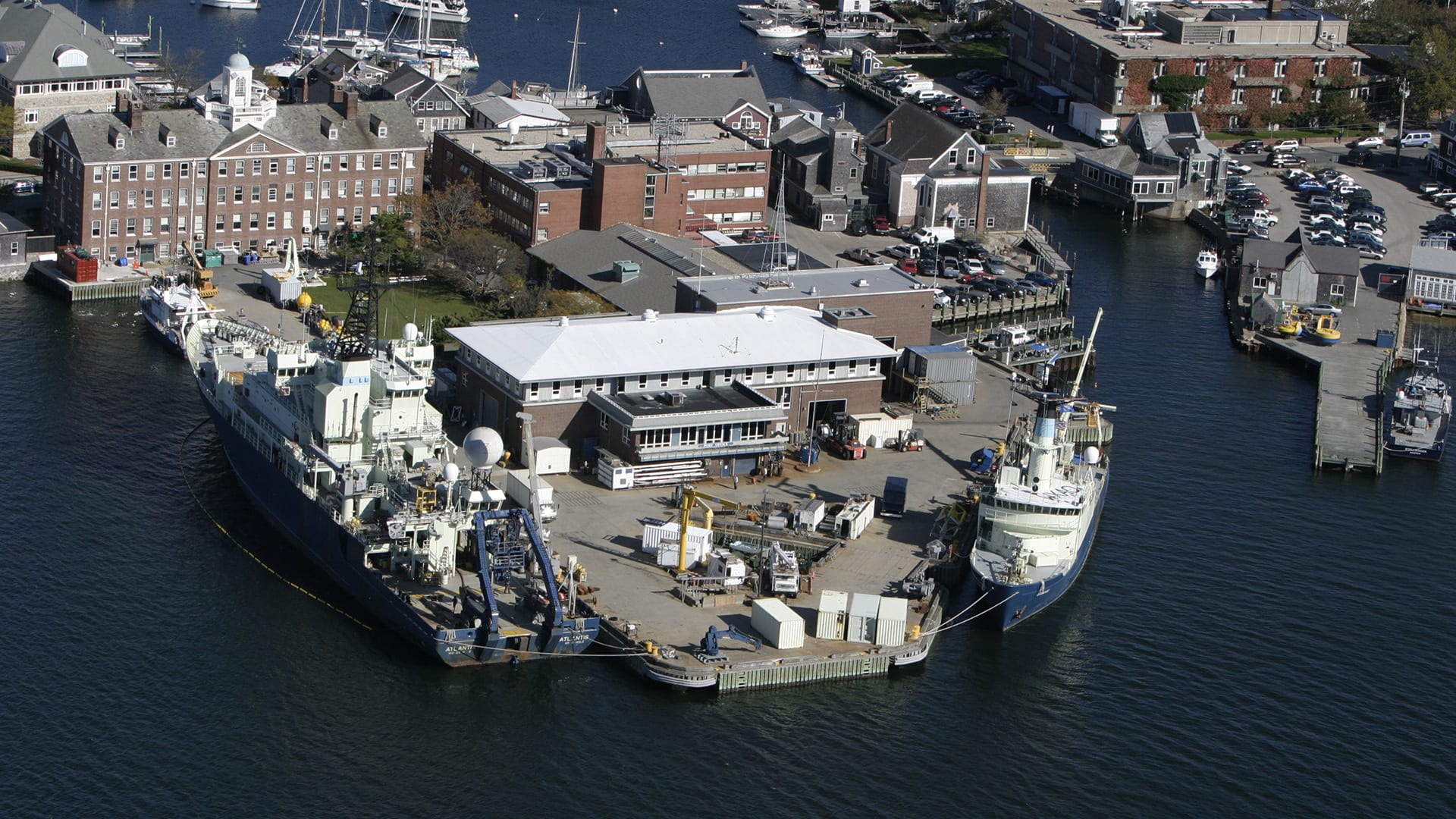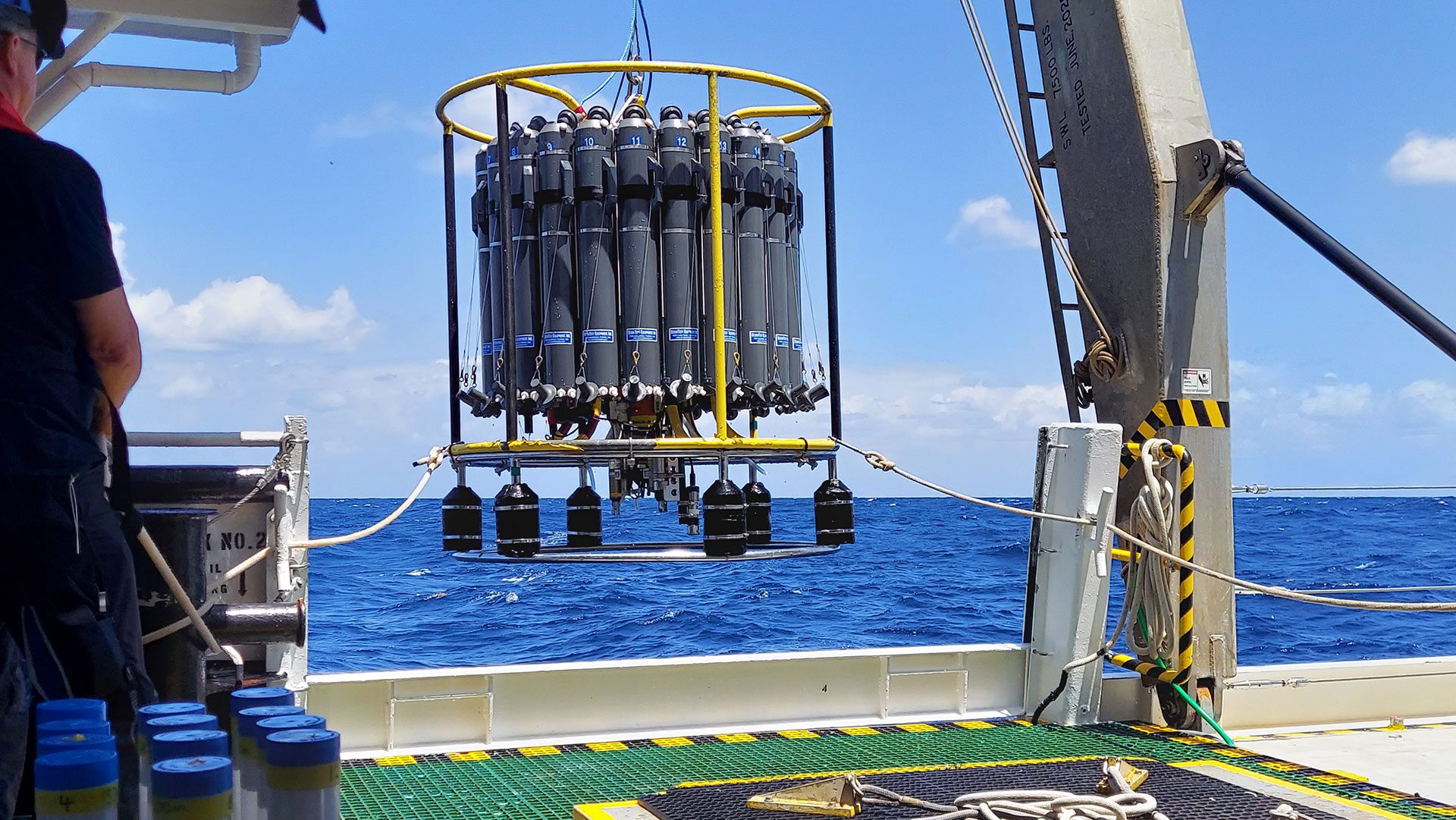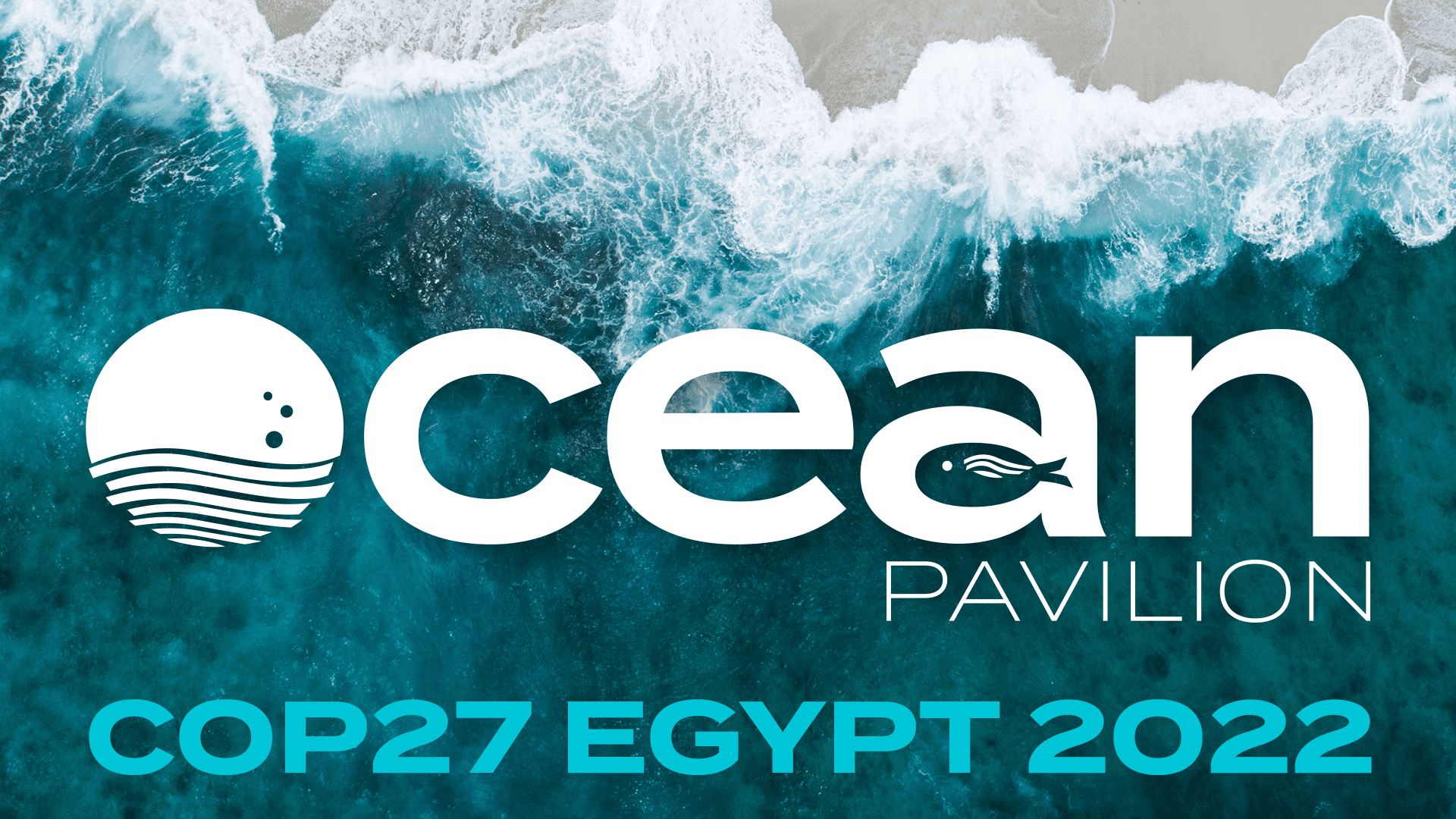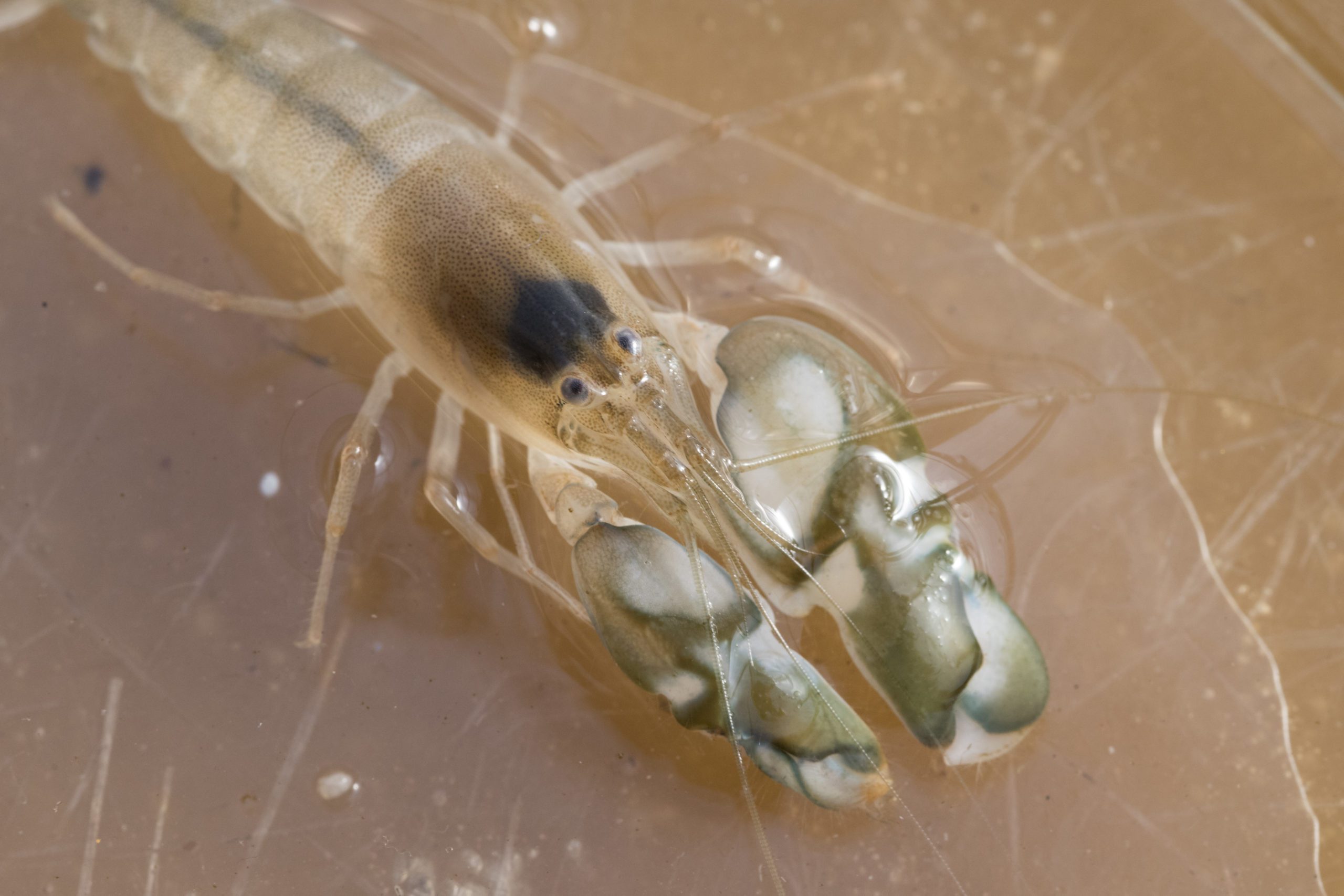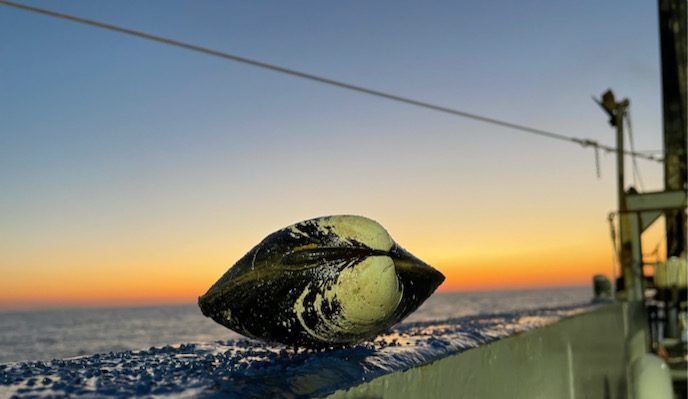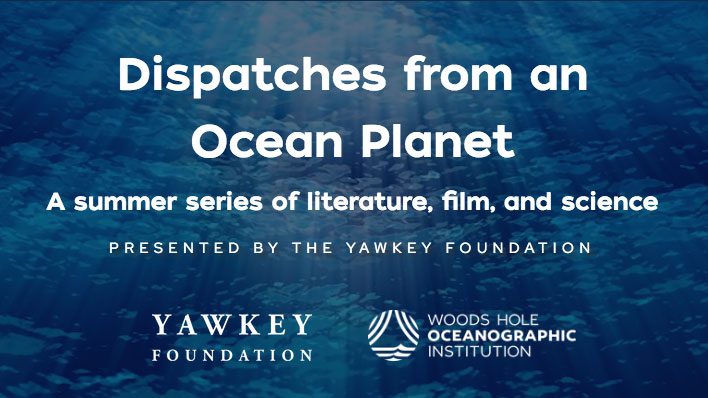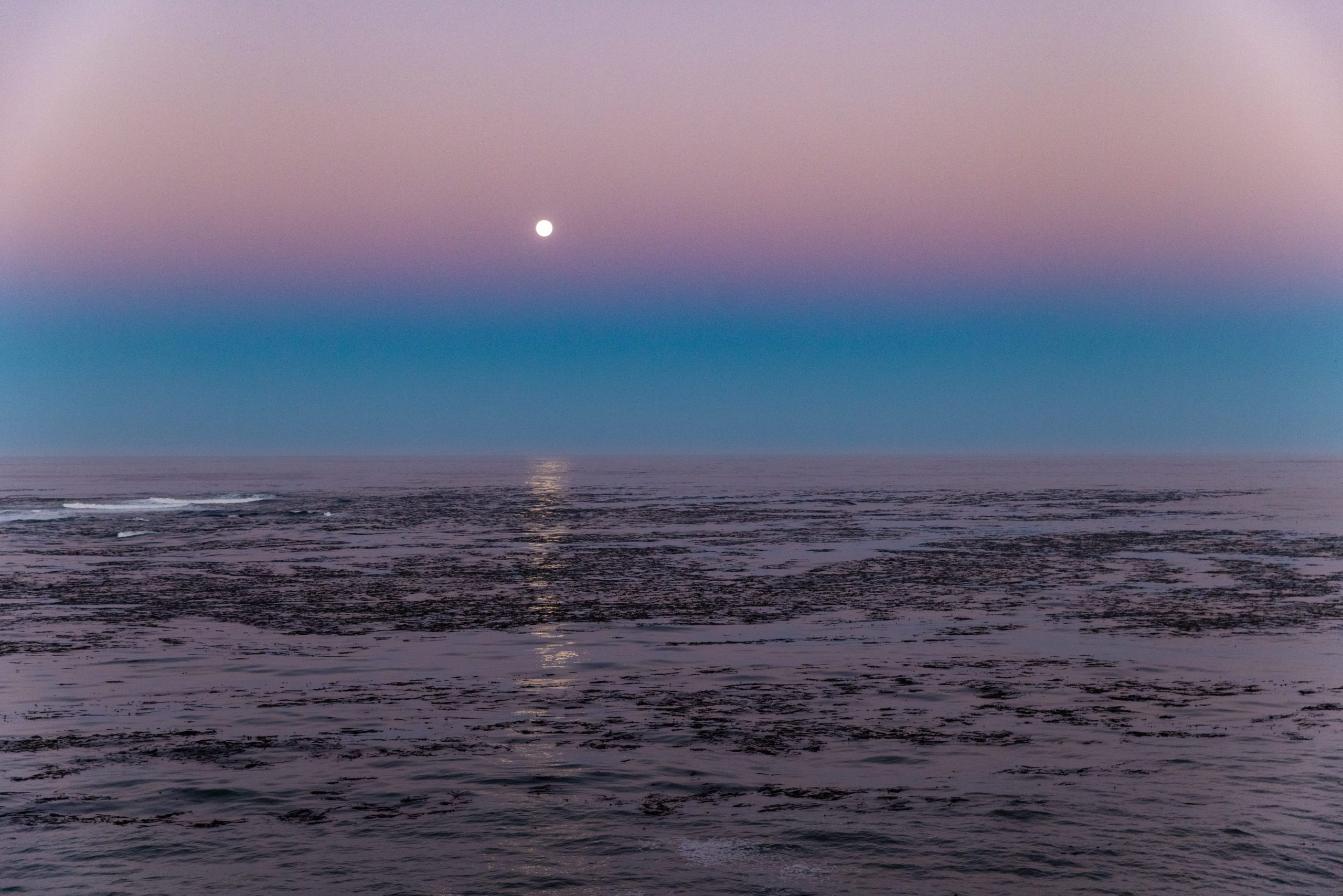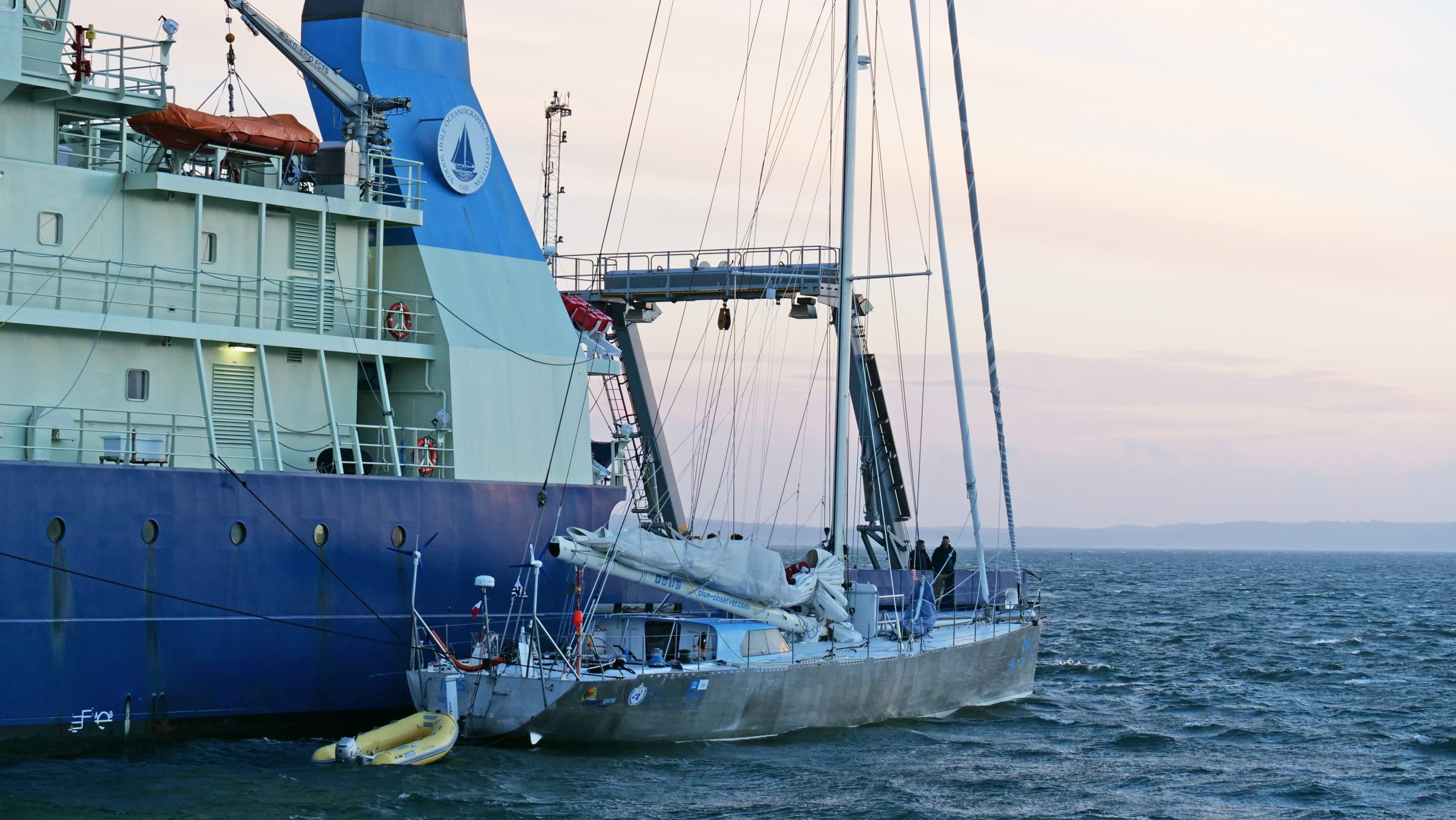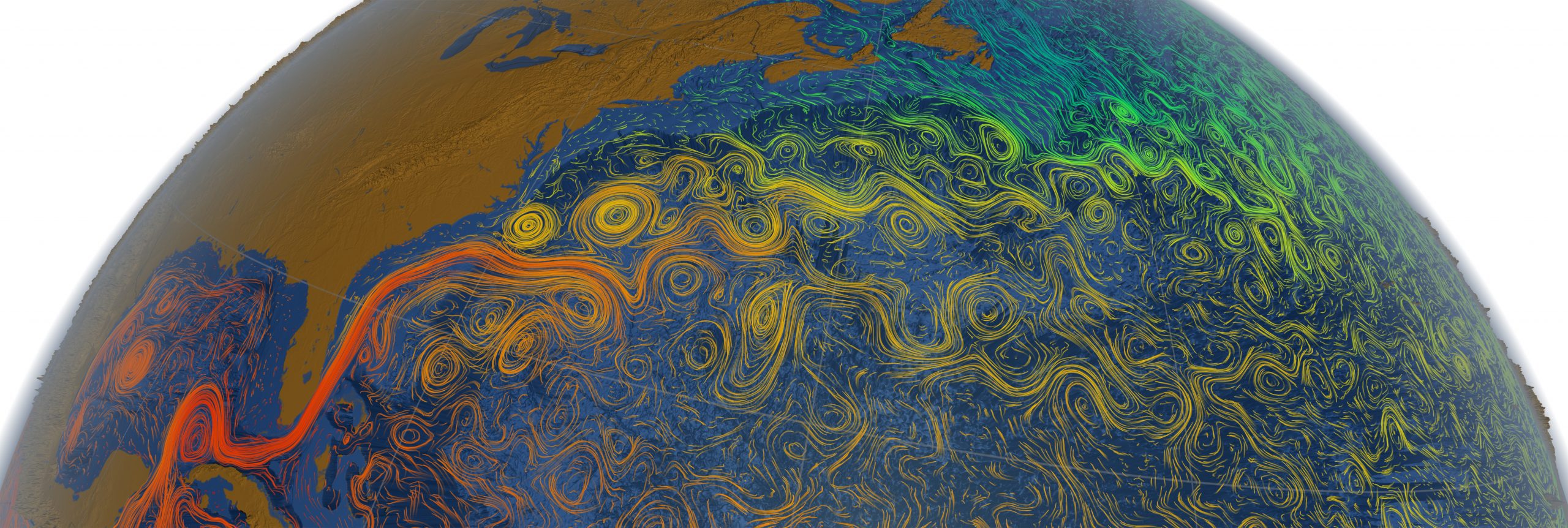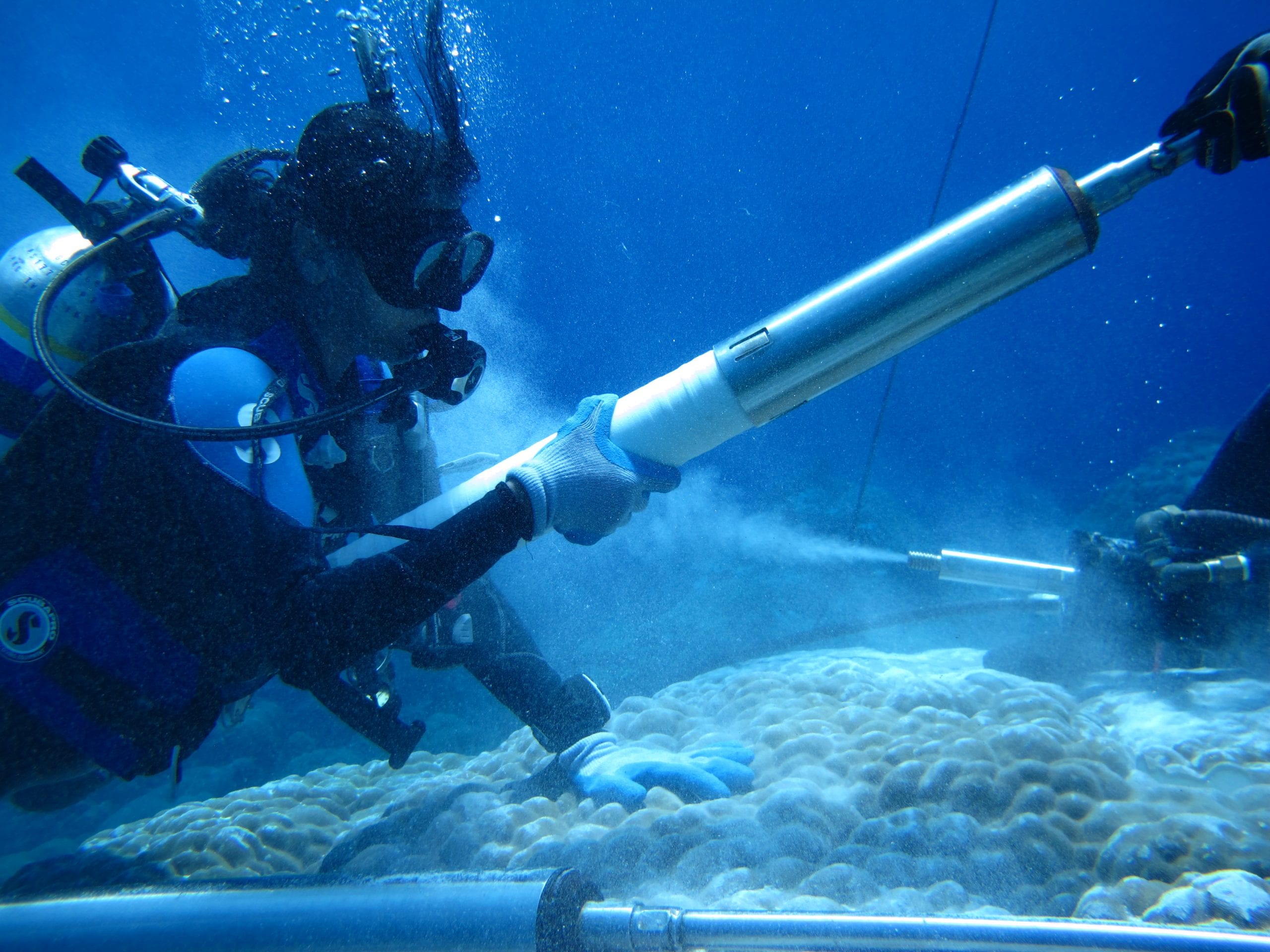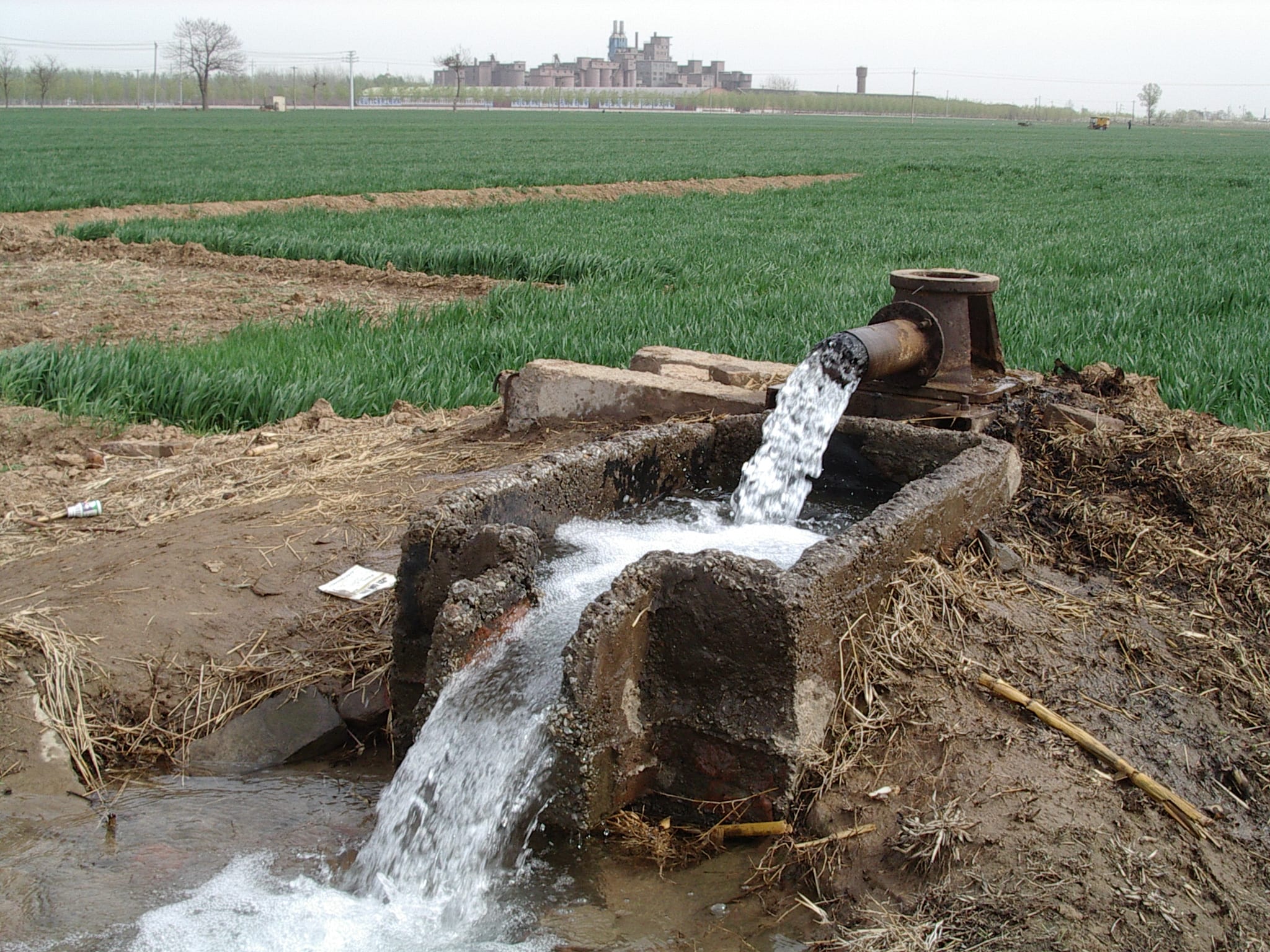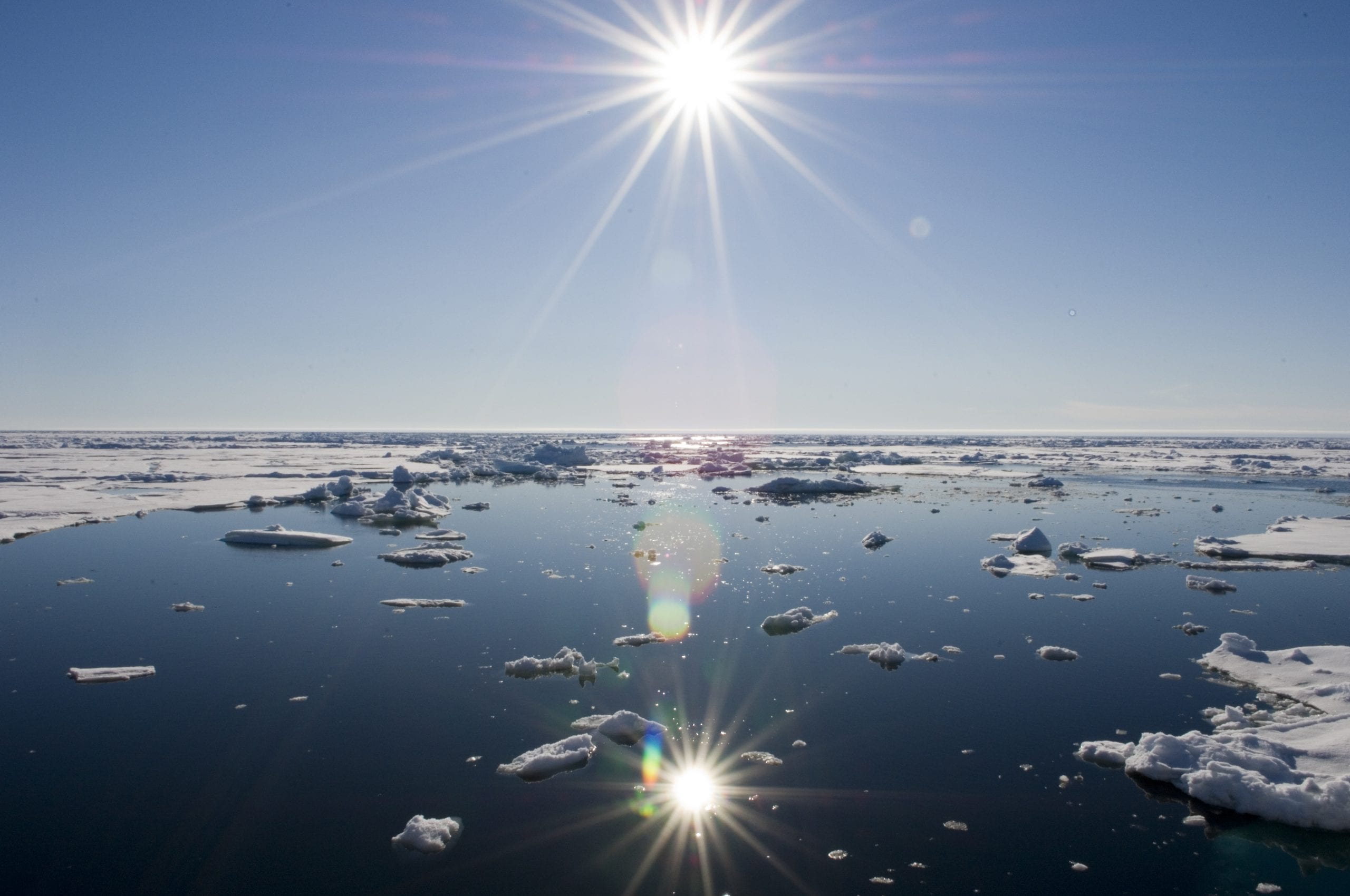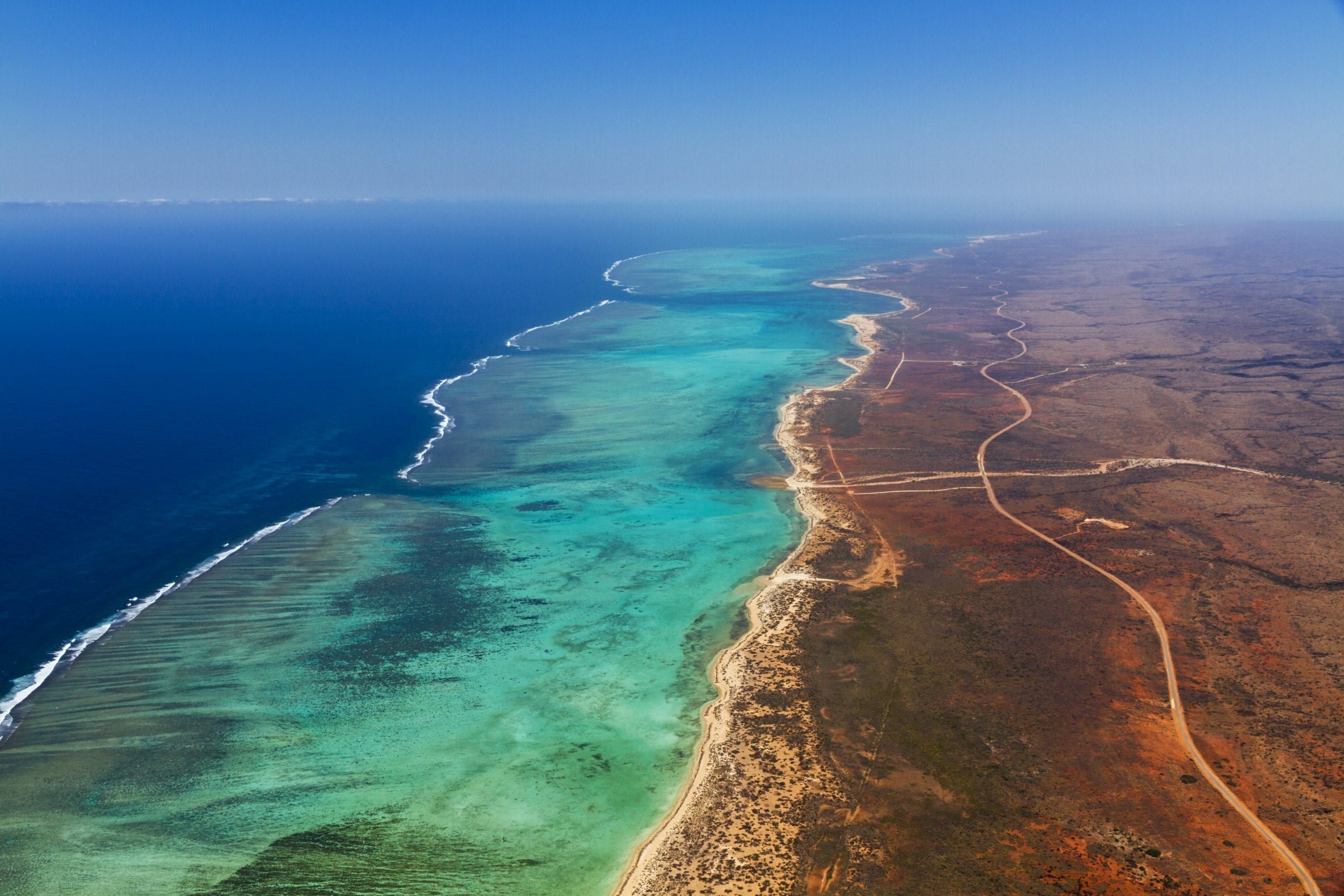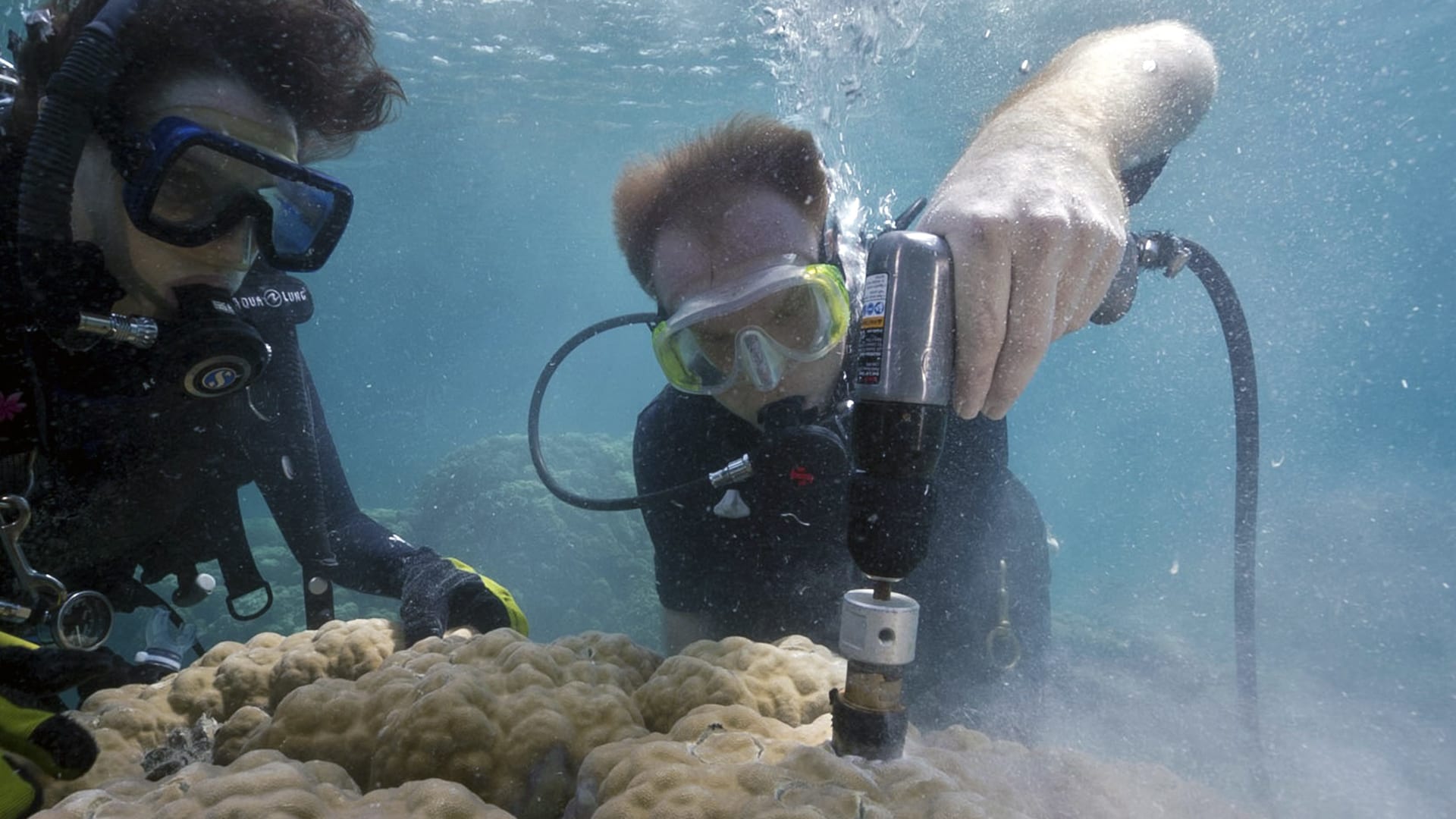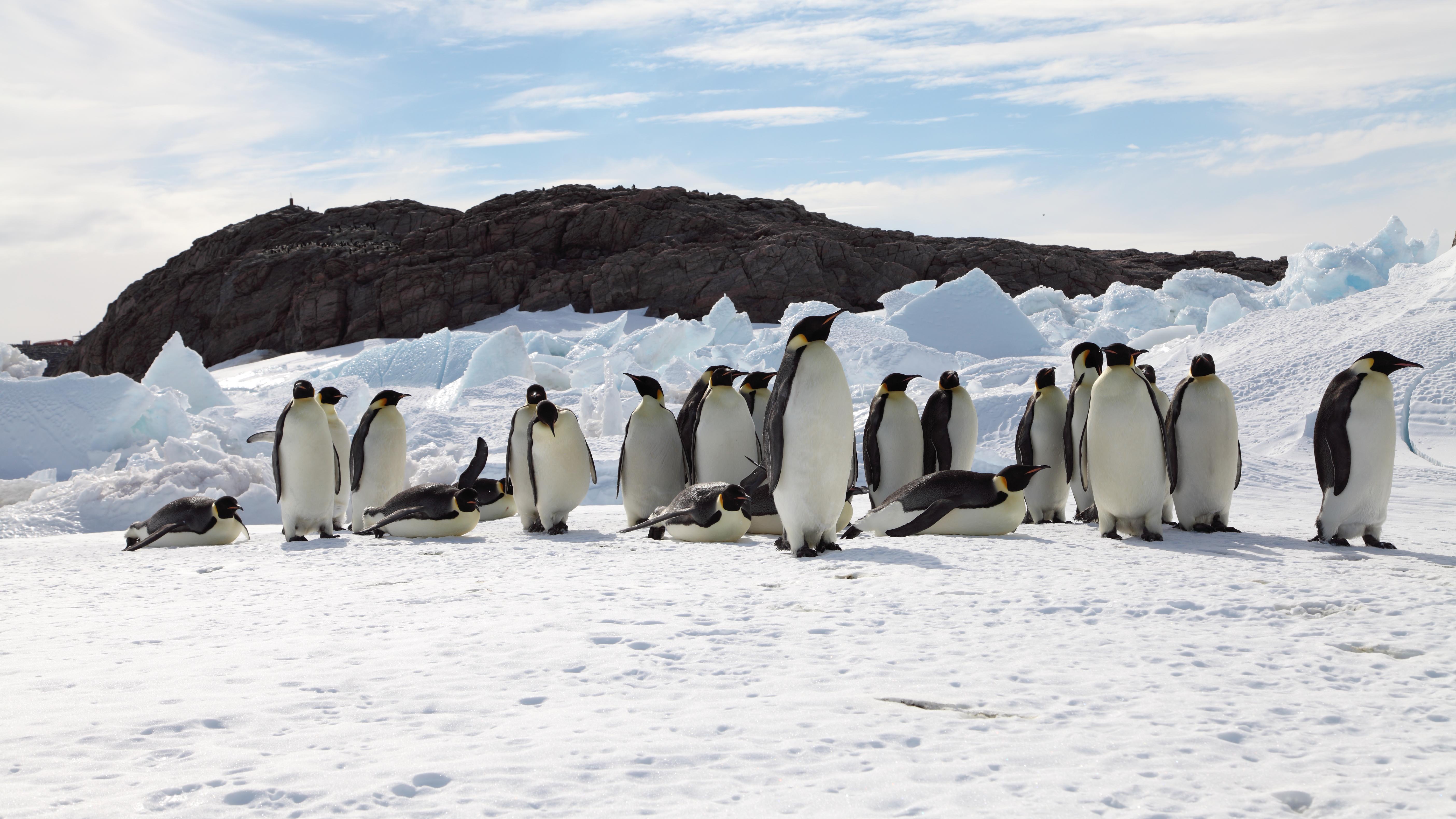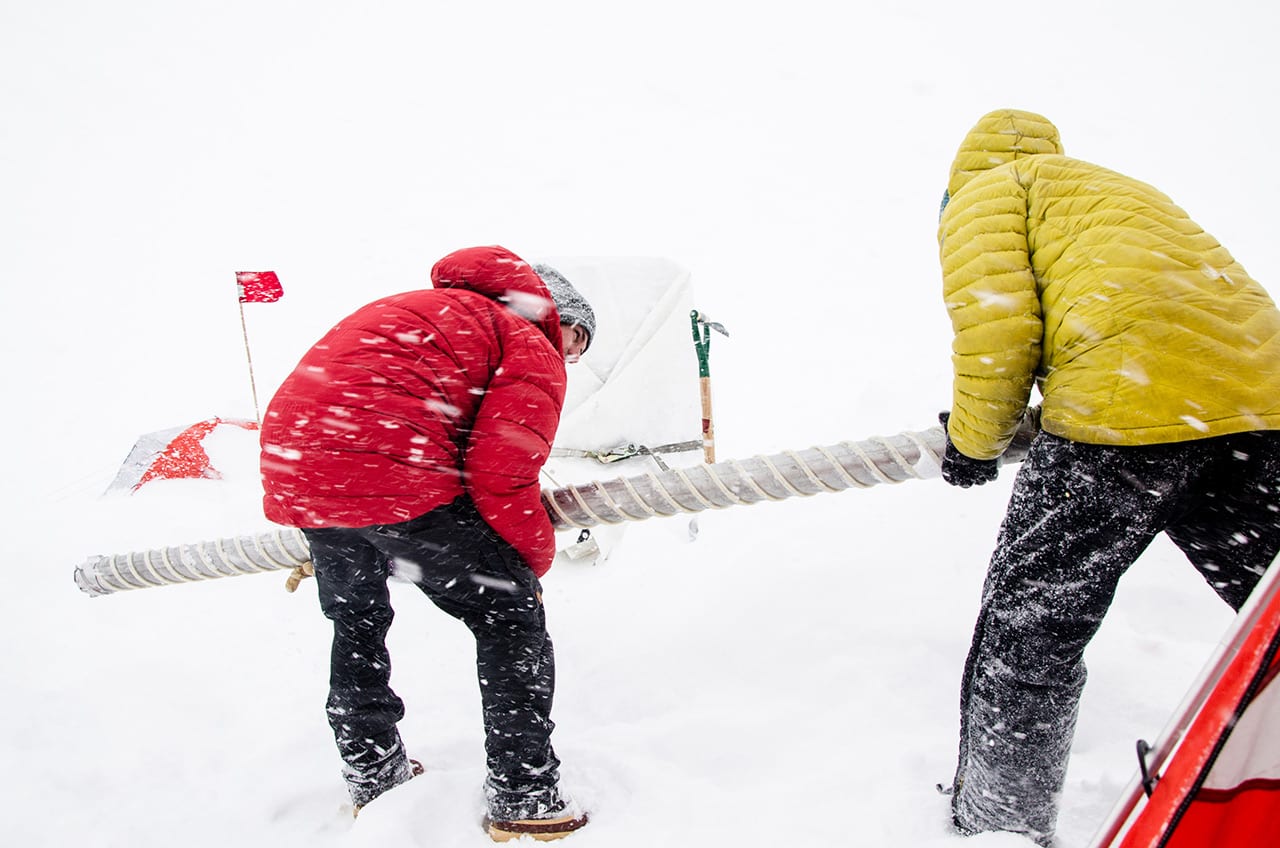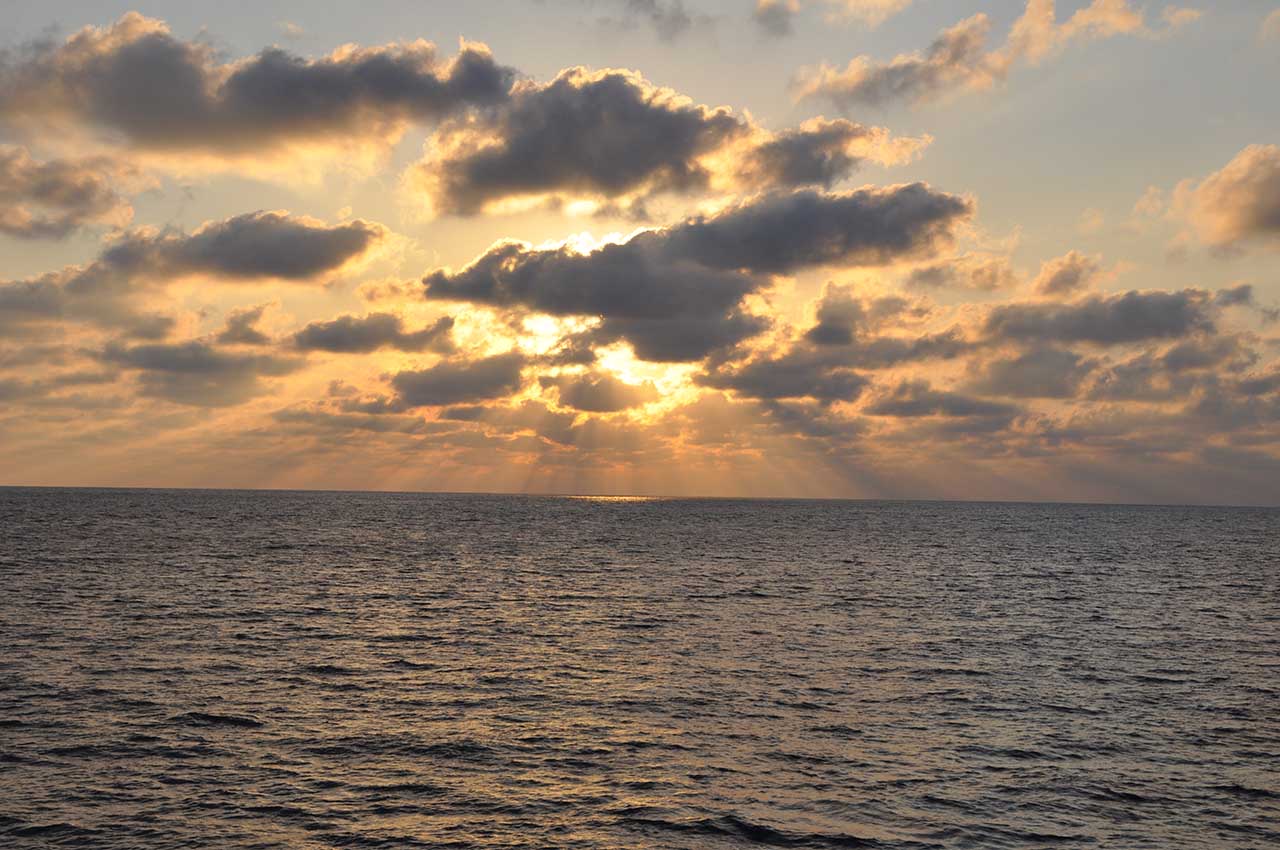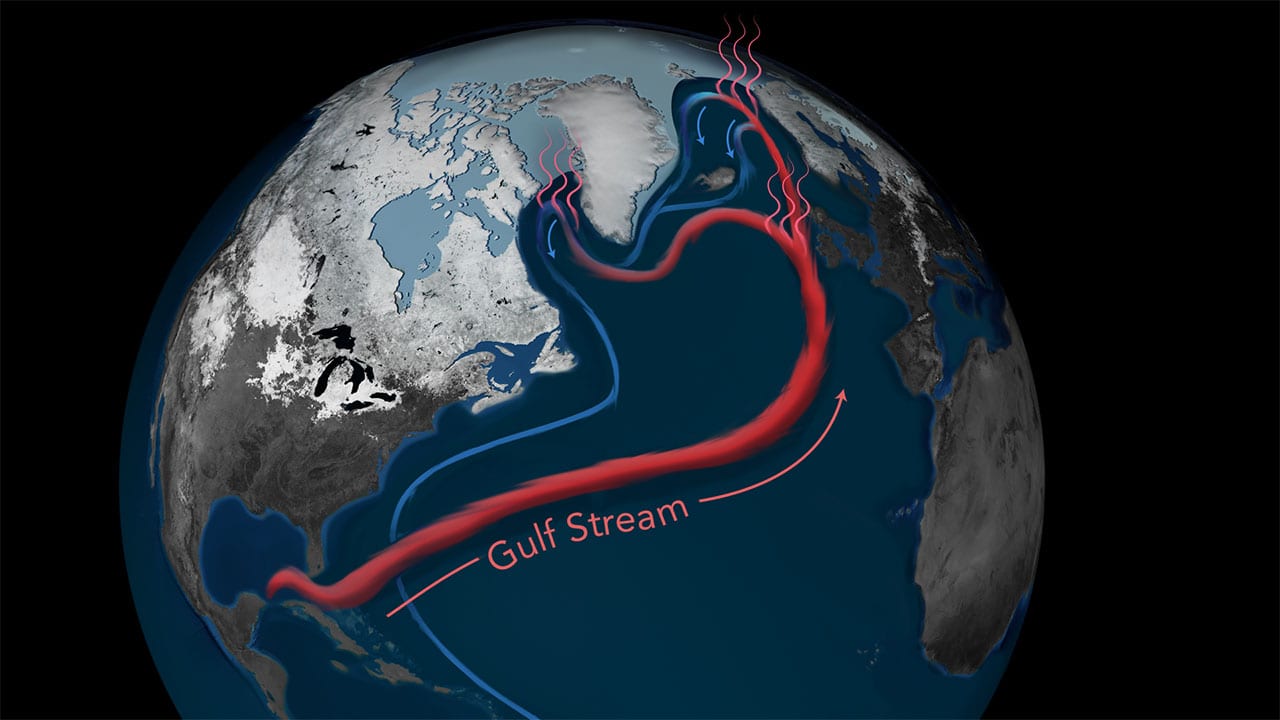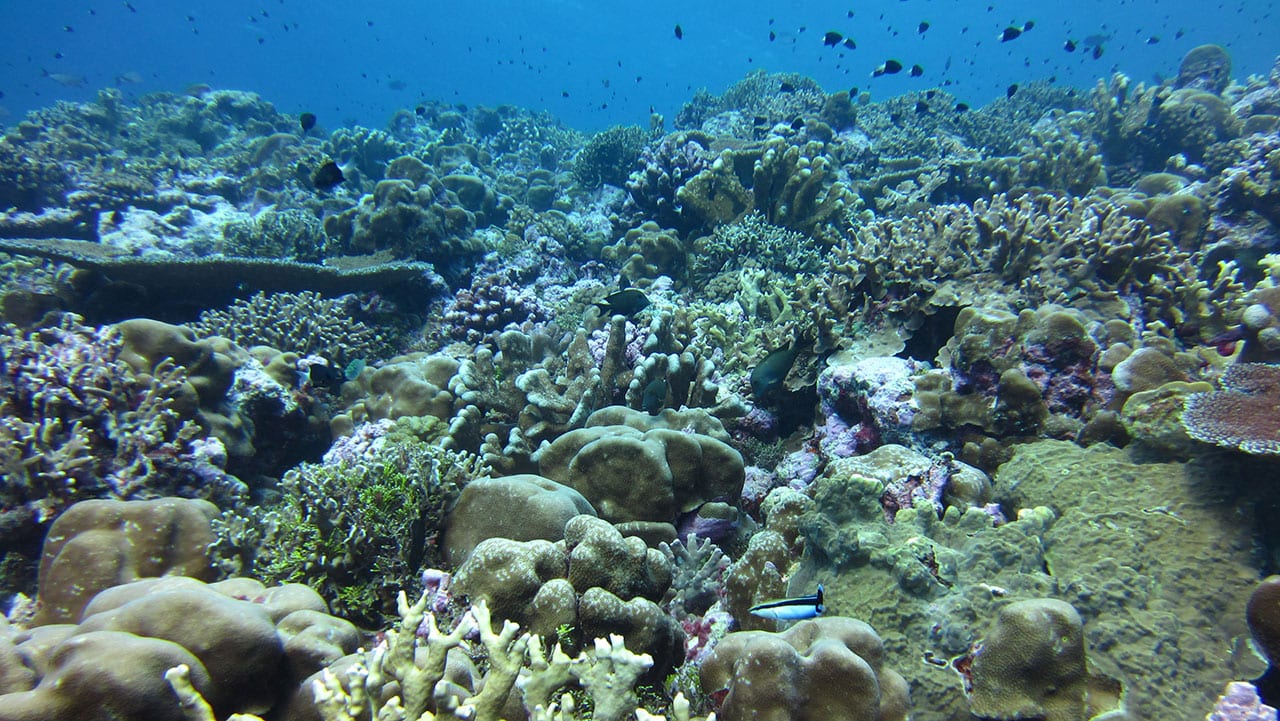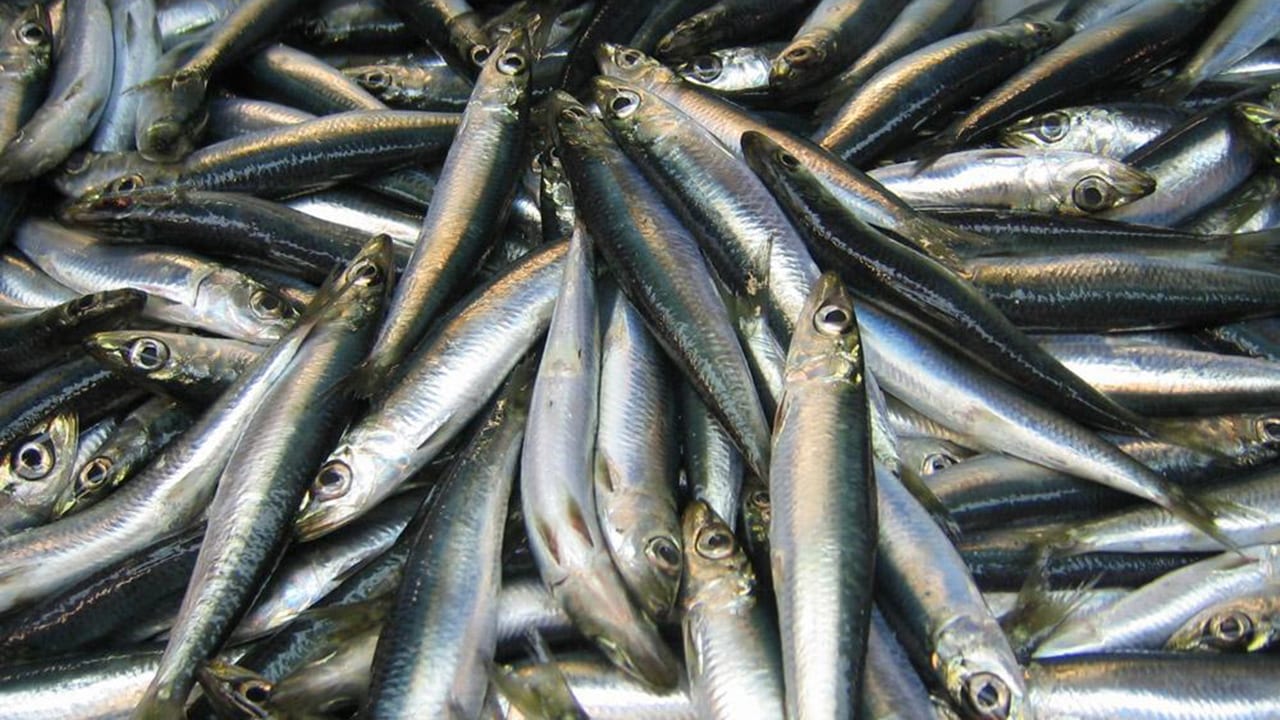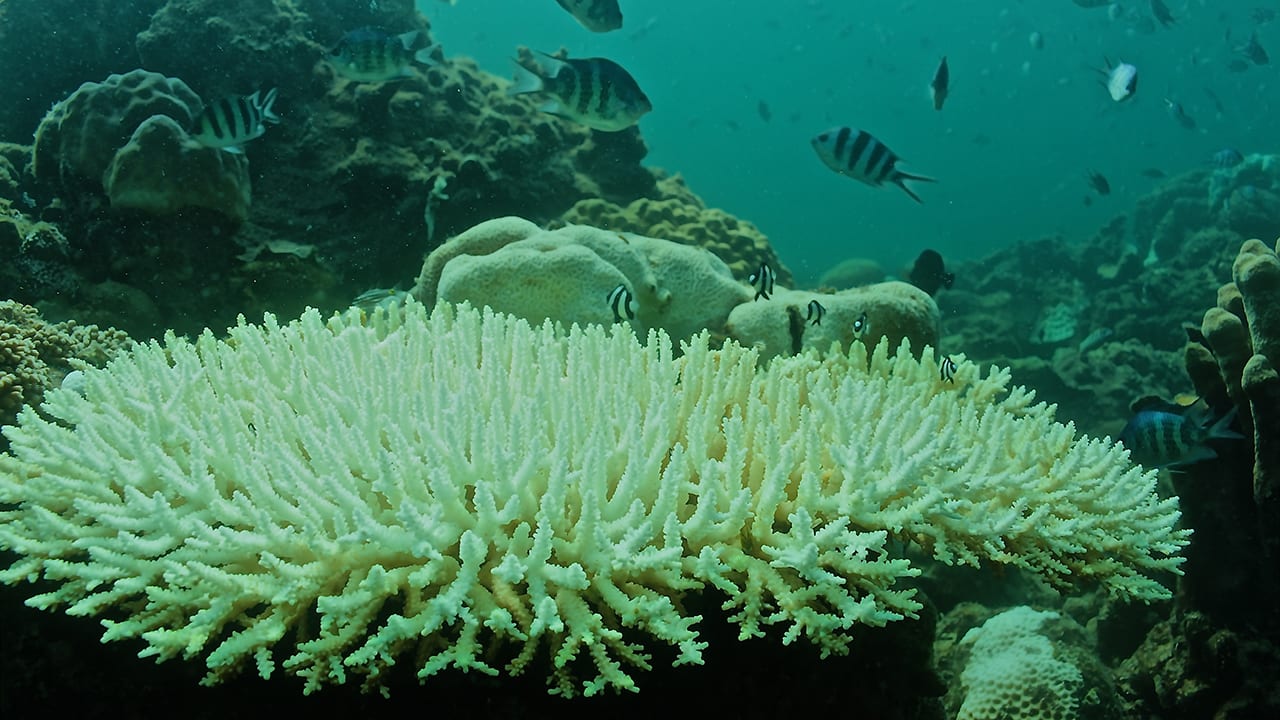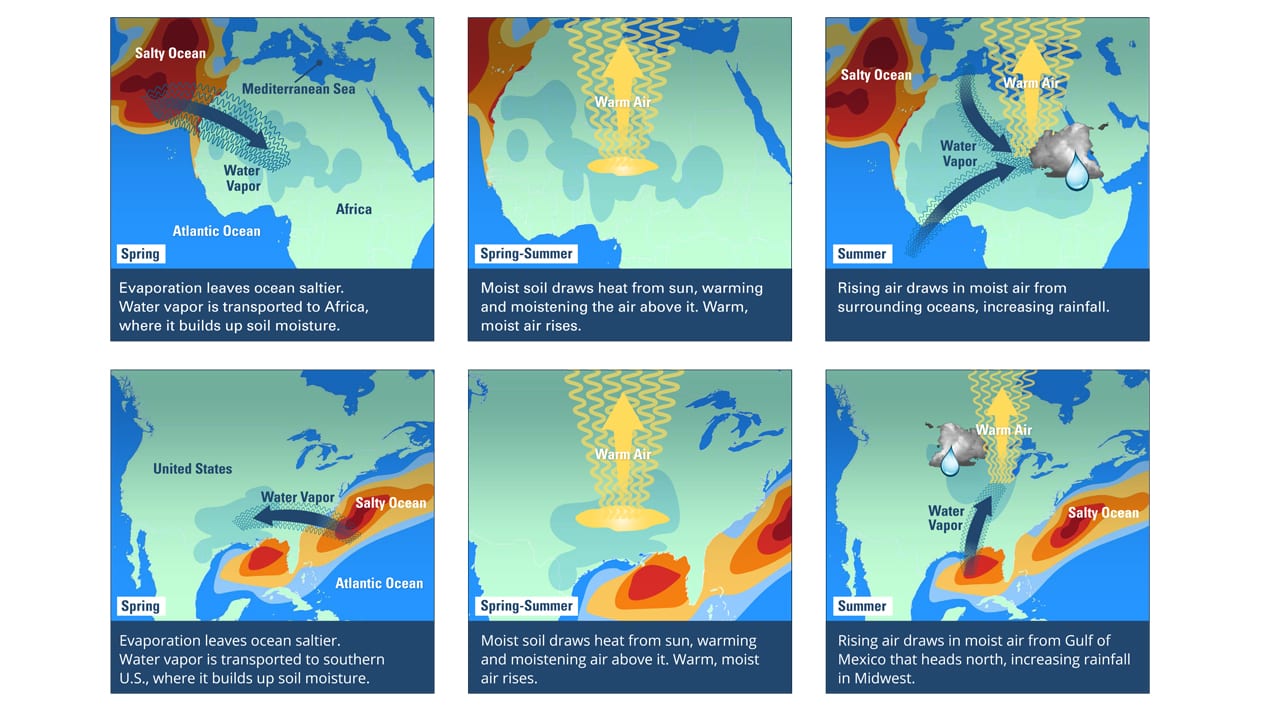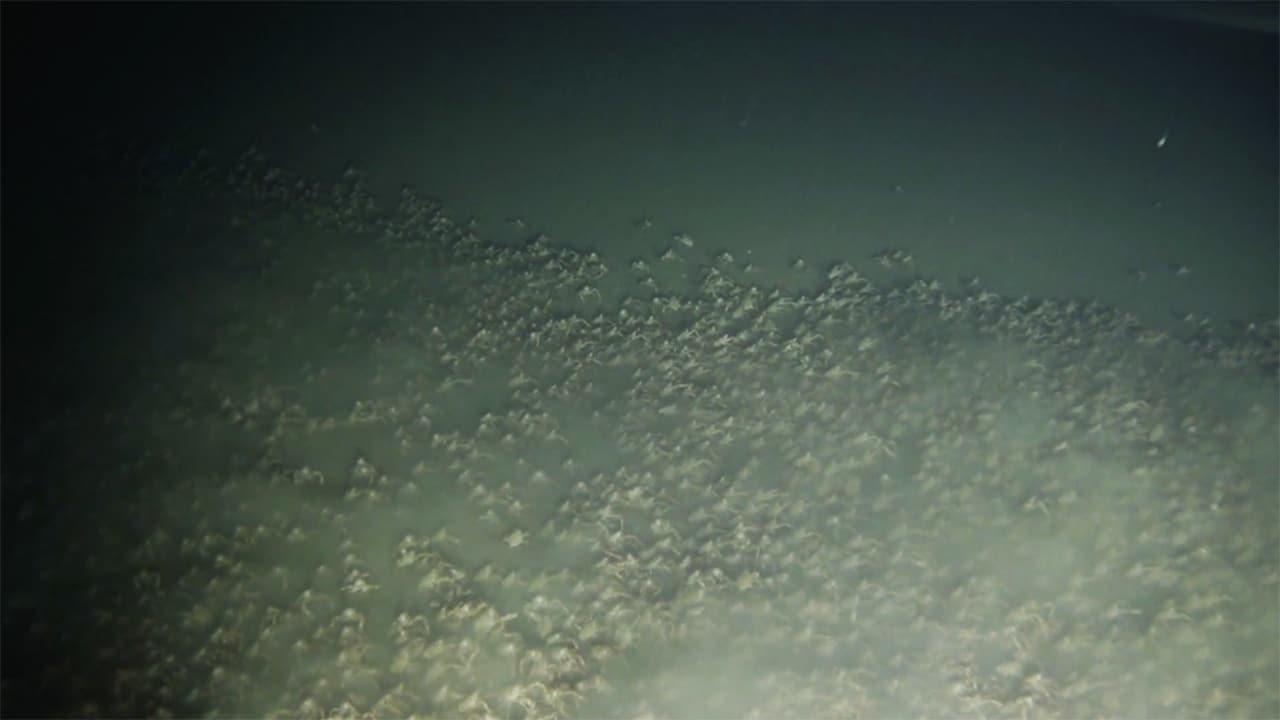News Releases
Woods Hole Oceanographic Institution Elects New Trustee and Corporation Members
The Board of Trustees of Woods Hole Oceanographic Institution (WHOI) today welcomed one new Board Member and eight new Corporation Members.
Read MoreA Better Understanding of Gas Exchange Between the Atmosphere and Ocean Can Improve Global Climate Models
If scientists can improve the way models represent physical processes such as gas exchange, they can have more confidence in future simulations.
Read MoreFirst ever ocean-focused pavilion in the Blue Zone
Leading ocean science and philanthropic organizations to highlight the global ocean at UN climate conference
Read MoreAs oceans warm, snapping shrimp sound a warning
Research published by Woods Hole Oceanographic Institution (WHOI) scientists today in Frontiers in Marine Science confirmed their previous observations that rising temperatures increase the sound of snapping shrimp, a tiny crustacean found in temperate and tropical coastal marine environments around the world.
Read MoreRapid warming in the Gulf of Maine reverses 900 years of cooling
Rapid 20th century warming in the Gulf of Maine has reversed long-term cooling that occurred there during the previous 900 years, according to new research that combines an examination of shells from long-lived ocean quahogs and climate model simulations.
Read MoreYawkey Foundation and WHOI present Summer Speaker Series, “Dispatches from an Ocean Planet”
Woods Hole Oceanographic Institution, in partnership with the Yawkey Foundation, proudly presents “Dispatches from an Ocean Planet”, a summer series of film and literature. The series marks the return of WHOI in-person events after a two-year hiatus due to the pandemic. All events require pre-registration.
Read MoreWoods Hole Oceanographic Institution and collaborators launch world’s largest kelp map
To further investigate and track kelp growth and survival over time, Woods Hole Oceanographic Institution, The Nature Conservancy, University of California Los Angeles, and the University of California Santa Barbara have launched the world’s largest map of kelp forest canopies extending from Baja California, Mexico to the Oregon-Washington border.
Read MoreBen Van Mooy awarded by Association for the Sciences of Limnology and Oceanography
WHOI senior scientist and Dept. Chair honored for phosphorus and lipid cycling research
Read MoreNew ocean floats to boost global network essential for weather, climate research
WHOI and partners join together to launch approximately 100 new Argo floats across the Atlantic Ocean to collect data that supports ocean, weather and climate research and prediction
Read MoreModeling our climate future; WHOI to lead ocean current research
Woods Hole Oceanographic Institution (WHOI) senior scientist of physical oceanography, Dr. Young-Oh Kwon, and WHOI adjunct scientist, Dr. Claude Frankignoul, have received a new research grant from the National Oceanic and Atmospheric Administration (NOAA) Modeling, Analysis, Predictions and Projections (MAPP) Program, funding their research project focusing on western boundary ocean currents and their correspondence with the atmosphere in relation to modern day climate.
Read MoreReview Evaluates the Evidence for an Intensifying Indian Ocean Water Cycle
Report Calls for Better Integration of Observations, Models, and Paleo Proxies The Indian Ocean has been warming much more than other ocean basins over the last 50-60 years. While temperature…
Read MoreStudy Finds 6⁰C Cooling on Land during the Last Ice Age, With Implications about Future Global Warming
A recent report shows that prior studies have underestimated the cooling in the last glacial period, which has low-balled estimates of the Earth’s climate sensitivity to greenhouse gases. The rather high climate sensitivity is not good news regarding future global warming, which may be stronger than expected using previous best estimates.
Read MoreWHOI and ADI Launch Ocean and Climate Innovation Accelerator
Today WHOI and Analog Devices, Inc. (ADI) launched an Ocean and Climate Innovation Accelerator (OCIA) consortium, focused on the critical role of oceans in combatting climate change, and developing new solutions at the intersection of oceans and climate.
Read MoreStudies investigate marine heatwaves, shifting ocean currents
North America experienced a series of dangerous heatwaves during the summer of 2020, breaking records from coast to coast. In the ocean, extreme warming conditions are also becoming more frequent and intense.
Read MoreOcean acidification causing coral ‘osteoporosis’ on iconic reefs
Scientists have long suspected that ocean acidification is affecting corals’ ability to build their skeletons, but it has been challenging to isolate its effect from that of simultaneous warming ocean…
Read MoreUnless warming is slowed, emperor penguins will be marching towards extinction
Emperor penguins are some of the most striking and charismatic animals on Earth, but a new study from the Woods Hole Oceanographic Institution has found that a warming climate may render them extinct by the end of this century. The study, which was part of an international collaboration between scientists, published Nov. 7, 2019, in the journal Global Change Biology.
Read MoreNorth Atlantic Ocean productivity has dropped 10 percent during industrial era
Scientists at MIT, Woods Hole Oceanographic Institution (WHOI), and elsewhere have found evidence that phytoplankton’s productivity is declining steadily in the North Atlantic, one of the world’s most productive marine basins.
Read MoreThe long memory of the Pacific Ocean
Researchers from the Woods Hole Oceanographic Institution (WHOI) and Harvard University have found that the deep Pacific Ocean lags a few centuries behind in terms of temperature and is still adjusting to the entry into the Little Ice Age. Whereas most of the ocean is responding to modern warming, the deep Pacific may be cooling.
Read MoreAtlantic Ocean Circulation at Weakest Point in 1,600 years
Atlantic Ocean Circulation at Weakest Point in More Than 1500 years New research led by University College London (UCL) and Woods Hole Oceanographic Institution (WHOI) provides evidence that a key cog in the global ocean circulation system hasn’t been running at peak strength since the mid-1800s and is currently at its weakest point in the past 1,600 years. If the system continues to weaken, it could disrupt weather patterns from the United States and Europe to the African Sahel, and cause more rapid increase in sea level on the U.S. East Coast.
Read MoreScientists Pinpoint How Ocean Acidification Weakens Coral Skeletons
The rising acidity of the oceans threatens coral reefs by making it harder for corals to build their skeletons. A new study identifies the details of how ocean acidification affects coral skeletons, allowing scientists to predict more precisely where corals will be more vulnerable.
Read MoreWHOI Led Research Team Receives Funding to Develop Ocean Temperature Forecast System
The Woods Hole Oceanographic Institution (WHOI) was awarded a competive federal grant from the National Oceanic and Atmospheric Administration (NOAA) to develop a forecast system that will predict seasonal and…
Read MoreCorals Die as Global Warming Collides with Local Weather in the South China Sea
New research highlights the devastation caused when global-scale ocean warming interacts with short-lived weather anomalies, and adds urgency to the question of how reefs will fare through the end of this century.
Read MoreSalty Oceans Can Forecast Rain on Land
At this week’s American Geophysical Union meeting, a team of researchers from the Woods Hole Oceanographic Institution (WHOI) presented their latest research findings on the long-range predictions of rainfall on land. Their method is based on ocean salinity rather than sea surface temperatures, which has been the standard for decades.
Read MoreSwarming Red Crabs Documented on Video
A research team studying biodiversity at the Hannibal Bank Seamount off the coast of Panama has captured unique video of thousands of red crabs swarming in low-oxygen waters just above the seafloor.
Read More
